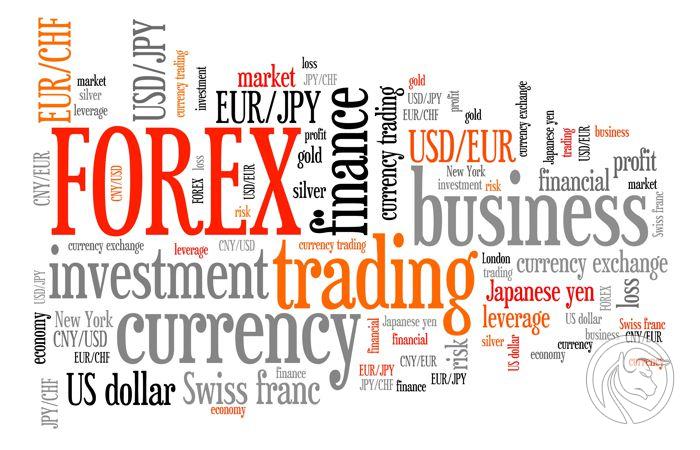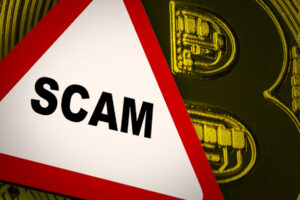Forex - where to start?
Beginners who have just heard about the Forex market feel completely lost on it. Especially if they had no closer contact with any financial markets before. They don't know where to start education, where to look for information, how to interpret it, and how to trade. Tempted by ads from brokers and high earning potential, they often have exaggerated expectations, which only intensifies the chaos in which they find themselves. This article aims to help novice investors find their place in it.
Forex - where to start?
You have no idea what's going on here? Calmly. No one was born with a thorough knowledge of this subject. Usually everyone starts similarly, i.e. installs the first better broker trading platform and assumes demonstration bill. It's best to immediately play with it in different ways, see how it works, what it offers and read the user manual, which is probably provided by the broker. At the beginning it does not matter which broker and platform we use, because we do not have specific requirements yet, so the time to pick up offers will come later.
Knowledge from Google
We start looking for information on the Internet under the slogan "Forex "... There are a lot of websites, and the best-positioned ones are usually brokers' websites with an exposed offer, where education is at a lower level and usually only contains the basics. This is a good start, but then you have to search deeper by typing individual phrases. There are loads of educational sites out there, and often one leads to another, so the learning may never end. Don't overdo it at first. Acquire this knowledge gradually and have fun on the demo all the time. Visit several macroeconomic calendars and keep track of them regularly. One of the most popular is Forex Factory, but at the beginning you can use any of them as well.
Books and e-books
On our site you will find an article with selected reviews book items and a dedicated section literature. After all, someone may ask the question "is it worth reading?" The answer should be obvious, but is it really? Yes and no. Books contain a lot of invaluable knowledge, but you also need to be able to filter it and translate it into Forex. Many of the items relate to the financial markets in general, while the foreign exchange market is evolving rapidly and is unique in its own way. Therefore, read, absorb knowledge and verify it with the charts. There are a lot of positions, so it is worth starting with more general titles and then, after we find out in which direction we want to go, switch to more specialized ones.
YOU HAVE TO SEE: Which books are worth reading
Investor's dictionary
spread, pip, swap, rolling, NFP, SMA, CCI, ECN, stop loss, buy stop limit ... Suddenly we come across so many terms that we have no idea. It is worth looking at a few different investor dictionaries (one will always contain new terms or more accessible definitions already known to us) and familiarize yourself with foreign terms. You can learn them or simply run a dictionary each time you come across them, and this way they will stay in our memory over time. These are the basics of the basics you need to know. You will find all the important concepts in ours Investor's Dictionary.
Training and courses
You follow the demo all the time, analyze the market with the knowledge you've already gained and try to slowly create your systems - great. However, the results are not satisfactory and you are thinking of going to some course or training. Is it a good idea for me? Well, in less than 7 years, I personally took part in just a few trainings (all free) and I honestly say that the information provided would only be useful to me in the first 2-3 months from the moment I learned what Forex is.
Trainings organized by brokers are usually free but also very basic, and the main task is to promote the company - there is nothing wrong with that. Something for something. If you need it, it's worth going. However, if you are counting on a larger portion of advanced knowledge, you should look for an independent trainer. There is no need to hide - knowledge costs so such training will be paid. Unfortunately, the higher price does not always go hand in hand with the quality, so you cannot only pay attention to it.
At the beginning, it should be specified what we are looking for: whether it is to be an on-line or stationary course, in a group or individual, what scope of material and topics we are interested in ... After finding an offer, it is worth verifying the knowledge of the trainer. Talk to him about his market experience, view his articles on the internet, analyzes, carefully read his website and look for feedback from students. There are a lot of companies that are focused on mastery, present a low level of knowledge and you need to be careful about them. At the same time, do not expect miracles from the trainers. They are not market charmers. You have to do the hard work yourself.
Internet forums
The problem with internet forums is that we come across a lot of opinions from different people whose knowledge and experience are not able to verify. This leads to the fact that sometimes we consider fact very subjective sentences or just nonsense having nothing to do with reality. Another problem is the large number of posts with zero value, which means that it takes us a long time to dig up useful information. Fortunately, it's not as bad as it may seem. There are places on the web where experienced practitioners speak from which you can get invaluable knowledge for free or even get inspired by their ideas and create your own concepts. I invite you to our forum, and if you know English, I recommend you register at the forum Forex Factory.
OPEN AN ACCOUNT AND DISCUSSION ON FOREX CLUB FORUM
Mentor - who is that?
If you've already made it here, the slogan "mentor" has definitely appeared somewhere. A mentor, i.e. a person with a considerable baggage of knowledge and experience, achieving satisfactory results on the financial markets, who will lead you by the hand and teach you everything. It would be wonderful, right? In the age of the Internet, it is easiest to find such a person on forums without leaving your home. Unfortunately, the reality is more brutal. If you succeed, it's great, but if not, don't worry and… "You can count - count on yourself." You can do well without a mentor.
When to go to the actual account
Real science only starts with real resources. Previously, it was only a substitute for what we can expect. When real money is involved, emotions such as fear, uncertainty, greed arise ... You won't show it on the demo account. Playing the demo for too long will only increase the fears of switching to a real account. If you are serious about investing, you should learn it in the serious market. The demo is primarily used to familiarize yourself with the platform, learn about the mechanisms operating in the Forex market and test your concepts related to strategy, analysis and trading. If you think you've done it all and have a specific system to play with, you won't be any more ready.
How much to invest
The first deposit should be neither too big nor too small. It cannot be too big, as it will make you afraid of making transactions to avoid losing it. If the amount is negligible, then you will not take it too seriously and its loss will not affect your mental situation at all, and you want to learn to control it. The size of the deposit must be determined individually. Be prepared to lose it entirely. It is not about a pessimistic attitude, but about a realistic view of the market. Suddenly you walk into a backyard where brokers, large financial institutions, hedge funds with advanced trading algorithms and investors with many years of experience come together - and you have to face them.
Which broker should you choose?
This item deserves separate article because choosing a broker is a very complex issue. To put it briefly, it's best to test several different platforms and see which one suits you best in terms of tools, interface, and speed. Then, when looking for a broker that provides a given platform, you should pay for what it offers, especially for the financial instruments on which you want to trade, the minimum deposit required or transaction costs. In addition, it is worth checking its credibility, i.e. licenses, regulations, share capital, opinions of other investors, capital guarantees and others. There is no single best broker on the market, so you should look for one that will meet your requirements.
The purpose of the investment
"If someone does not know which port he is sailing to, no wind is good" - translating it into investments, if you do not specify the goal you want to achieve, you do not know what to pursue. At the beginning, non-loss, i.e. oscillating around the initial deposit, is a great success. Then, with further education and experience, it should only get better and you can set a target of e.g. 5% per quarter. It is better not to set goals for too short a period of time (e.g. a day, a week) because it increases the pressure, which is certainly not recommended especially at the beginning. Don't break if you start to lose at first. You will only fail if the losses teach you nothing and you repeat the mistakes you made.
"Forex - where to start?" - will you know the answer to this question? Certainly yes. Good luck!






















![Forex Club – Tax 9 – Settle tax on a foreign broker [Download the Application] Forex Club - Tax 9](https://forexclub.pl/wp-content/uploads/2024/02/Forex-Club-Podatek-9-184x120.jpg?v=1709046278)
![Trading View platform – solutions tailored to the needs of traders [Review] trading view review](https://forexclub.pl/wp-content/uploads/2024/03/trading-view-recenzja-184x120.jpg?v=1709558918)
![How to connect your FP Markets account to the Trading View platform [Guide] fp markets trading view](https://forexclub.pl/wp-content/uploads/2024/02/fp-markets-trading-view-184x120.jpg?v=1708677291)
![How to invest in ChatGPT and AI? Stocks and ETFs [Guide] how to invest in chatgpt and artificial intelligence](https://forexclub.pl/wp-content/uploads/2023/02/jak-inwestowac-w-chatgpt-i-sztuczna-inteligencje-184x120.jpg?v=1676364263)



![Izabela Górecka – “Success on the market depends not only on knowledge, but also on emotional stability” [Interview] Izabela Górecka - interview](https://forexclub.pl/wp-content/uploads/2024/04/Izabela-Gorecka-wywiad-184x120.jpg?v=1713870578)
![WeWork – the anatomy of the collapse of a company valued at $47 billion [WeWork, part II] wework bankruptcy story](https://forexclub.pl/wp-content/uploads/2024/04/wework-bankructwo-historia-184x120.jpg?v=1711729561)
![Adam Neumann – the man who screwed up Softbank [WeWork, part AND] adam neumann wework](https://forexclub.pl/wp-content/uploads/2024/04/adam-neumann-wework-184x120.jpg?v=1711728724)





![The most common mistakes of a beginner trader - Mr Yogi [VIDEO] Scalping - The most common mistakes of a beginner trader - VIDEO](https://forexclub.pl/wp-content/uploads/2024/03/Scalping-Najczestsze-bledy-poczatkujacego-tradera-VIDEO-184x120.jpg?v=1711601376)
![Learning patience: No position is also a position - Mr Yogi [VIDEO] Scalping - Learning patience - No position is also a position - VIDEO](https://forexclub.pl/wp-content/uploads/2024/03/Scalping-Nauka-cierpliwosci-Brak-pozycji-to-tez-pozycja-VIDEO-184x120.jpg?v=1710999249)
![When to exit a position and how to minimize losses - Mr Yogi [VIDEO] Scalping - When to exit a position and how to minimize losses - VIDEO](https://forexclub.pl/wp-content/uploads/2024/03/Scalping-Kiedy-wyjsc-z-pozycji-i-jak-minimalizowac-straty-VIDEO-184x120.jpg?v=1710336731)





![Learning patience: No position is also a position - Mr Yogi [VIDEO] Scalping - Learning patience - No position is also a position - VIDEO](https://forexclub.pl/wp-content/uploads/2024/03/Scalping-Nauka-cierpliwosci-Brak-pozycji-to-tez-pozycja-VIDEO-300x200.jpg?v=1710999249)












